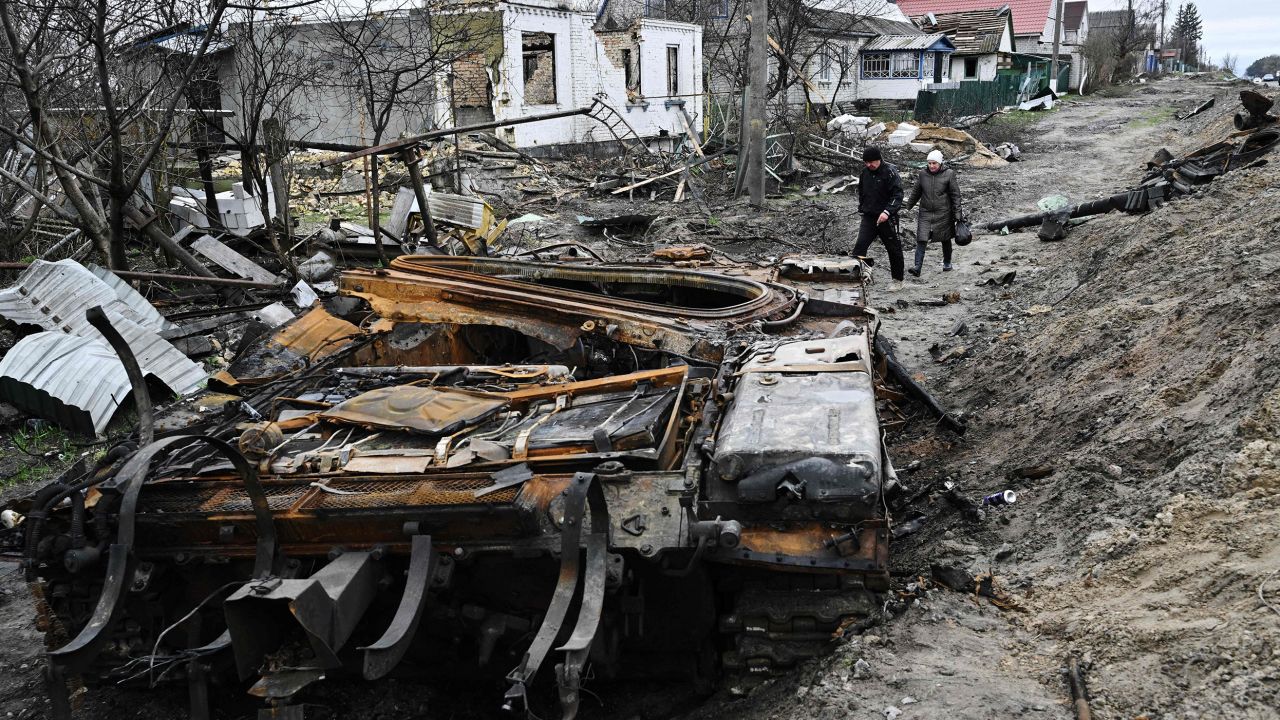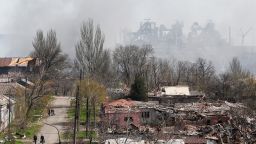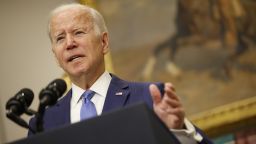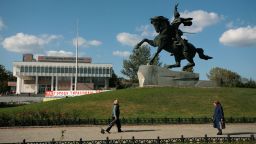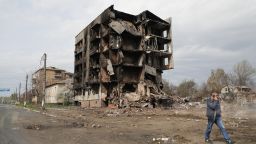Ukrainian officials have condemned Russia’s missile attack on Kyiv Thursday night, saying it occurred as the United Nations Secretary-General Antonio Guterres was finishing a visit to the Ukrainian capital.
President Volodymyr Zelensky, in his daily video message, said that “Today, immediately after the end of our talks [with Guterres] in Kyiv, Russian missiles flew into the city. 5 missiles. This says a lot about Russia’s true attitude to global institutions, about the Russian leadership’s efforts to humiliate the UN and everything that the organization represents. And therefore requires an appropriate, powerful response.”
“Russian missile strikes on Ukraine — on Kyiv, Fastiv, Odesa, Khmelnytskyi and other cities — prove once again that one cannot relax yet, one cannot think that the war is over. We still need to fight, we need to drive the occupiers out,” Zelensky said
If you’re just joining us, here’s a look at other key updates about the invasion and the global response so far:
10 Russian soldiers identified as suspects in “crimes committed” in Bucha, Zelensky says: President Zelensky said 10 Russian service members have been identified as suspects in the “crimes committed against our people in Bucha.”
In his nightly address posted to social media on Thursday, Zelensky said the investigation into crimes committed by the Russian military is underway and that the “first ten Russian servicemen from the 64th motorized rifle brigade of the Russian Ground Forces who committed crimes against our people in Bucha, Kyiv region, received the status of suspects.”
UN chief urges evacuation corridors to open in Mariupol: “Thousands of civilians need life-saving assistance”: The United Nations secretary-general urged on Thursday for evacuation corridors to open up in the Ukrainian city of Mariupol, saying that the besieged city is a “crisis within a crisis.”
“Today the people of Mariupol are in desperate need for such an approach. Mariupol is a crisis within a crisis,” Guterres said in Kyiv, speaking at news conference alongside Zelensky .
“Thousands of civilians need life-saving assistance. Many are elderly need medical care or have limited mobility, they need an escape route out of the apocalypse,” he added.
The UN chief met with Zelensky and Ukrainian Foreign Minister Dmytro Kuleba on Thursday following a visit to Moscow where he met Russian President Vladimir Putin on Tuesday.
Russian forces are trying to eradicate Ukrainian identity in Kherson: Russian forces occupying much of the southern Ukrainian region of Kherson are trying to extend their grip over the area and eradicate its Ukrainian identity.
They have made modest advances on the battlefield, with the Ukrainians acknowledging a loss of territory in the direction of Mykolaiv to the northwest.
In recent days the Russians have appointed their own officials to run Kherson, replacing elected Ukrainian officials. On Thursday one of those newly installed officials said Kherson would begin to use the ruble from next week and the Ukrainian currency, the hryvnia, would be replaced within four months.
Additionally, Russian television channels have taken the place of Ukrainian networks.
Now one of the Ukrainian representatives on Kherson’s regional council has accused the Russian forces of threatening educators.
45 Ukrainians freed in latest prisoner exchange with Russia, official says: Ukrainian Deputy Prime Minister Iryna Vereshchuk said Thursday that 45 Ukrainians were freed in the latest exchange of prisoners of war with Russia.
“Today 45 of our people have been released from Russian captivity: 13 officers and 20 soldiers, including 5 wounded,” Vereshchuk said in a post on Telegram.
“We are also returning 12 of our civilians home,” she added.
The deputy prime minister did not provide details on how many Russian prisoners were freed in the exchange. Russia is yet to confirm the swap.


